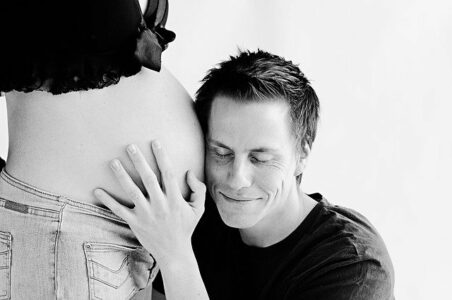Introduction to the Complexity of Love and Marriage
Love and marriage are among the most profound and intricate aspects of human experience. They intertwine emotional, psychological, social, and sometimes even economic factors, making their dynamics rich and complex. Understanding these complexities is essential for nurturing healthy relationships and for personal growth.
Understanding Emotional Bonds
Emotional bonds are the foundation of both love and marriage. They encompass a range of feelings and interactions, including affection, trust, respect, and mutual support. These bonds are not static; they evolve over time and require continuous nurturing. Key aspects include:
- Attachment and Security: The feeling of safety and security in a relationship is fundamental. It allows individuals to express themselves freely and grow within the relationship.
- Communication: Effective communication is crucial. It involves not just talking, but actively listening, empathizing, and understanding your partner’s perspective.
- Emotional Intimacy: This refers to a deep level of closeness where partners can share their deepest thoughts, feelings, and vulnerabilities without fear of judgment.
- Respect and Appreciation: Mutual respect and appreciation are vital for sustaining emotional bonds. Recognizing and valuing each other’s qualities, contributions, and differences strengthen the relationship.
- Conflict Resolution: Handling conflicts constructively without damaging the emotional connection is essential for maintaining strong bonds.
The Dynamics of Marriage and External Love
Marriage and external love (love that exists or is expressed outside of the marriage) can have various dynamics, influenced by cultural, societal, and personal factors.
- Cultural and Societal Expectations: These play a significant role in how marriage is perceived and practiced. Expectations regarding roles, responsibilities, and the nature of love can vary widely.
- Personal Growth and Changes: Individuals evolve over time, and this personal growth can affect marital dynamics. Adapting to and embracing these changes is crucial for a healthy marriage.
- External Influences: Factors such as family, friends, career, and hobbies can influence marital dynamics. Balancing these external aspects with the needs of the marriage is important.
- Love Beyond Marriage: Love can manifest in many forms outside of marriage, such as platonic love, love for family, and self-love. Acknowledging and understanding these forms of love can enrich personal experiences and relationships.
- Challenges and Crisis Management: Marriages may face various challenges like financial strain, health issues, or external temptations. Navigating these challenges together strengthens the bond.
- Longevity and Adaptation: A long-lasting marriage requires adaptation and willingness to grow both individually and as a couple. Keeping the relationship dynamic and responsive to changing needs is key.
In conclusion, love and marriage are dynamic and multifaceted, requiring continuous effort, understanding, and adaptation. Recognizing their complexity helps in fostering deeper, more fulfilling relationships.
Exploring the Concept of True Love in a Marriage
The notion of true love in marriage is both timeless and universally intriguing. It is a concept that has been explored and debated through the ages, often shaped by social and cultural contexts. Understanding what constitutes true love and how it is influenced by various norms can provide deeper insight into the dynamics of marital relationships.
Defining True Love
True love in a marriage is often characterized by several key elements:
- Unconditional Acceptance: True love involves accepting your partner for who they are, including their flaws and idiosyncrasies, without trying to change them.
- Deep Emotional Connection: It goes beyond surface-level attraction to a profound emotional bond, where partners feel a strong sense of empathy, understanding, and compassion for each other.
- Mutual Respect and Support: This entails a reciprocal appreciation of each other’s values, desires, and ambitions, and a willingness to support each other through various life stages and challenges.
- Trust and Honesty: A cornerstone of true love, trust is built on consistent honesty and reliability, fostering a safe and secure environment within the relationship.
- Commitment: True love in marriage is often marked by a long-term commitment, where both partners are dedicated to nurturing and maintaining their bond over time.
- Growth and Forgiveness: It recognizes that people grow and change over time. True love involves a willingness to adapt, forgive, and grow together.
The Influence of Social and Cultural Norms
Social and cultural norms play a significant role in shaping perceptions and expectations of true love in marriage:
- Cultural Depictions of Love: Literature, media, and traditions in different cultures often depict idealized versions of love, which can influence people’s expectations and experiences in their own relationships.
- Societal Expectations: Societal norms about gender roles, family structures, and relationship dynamics can impact how individuals perceive and express love in marriage.
- Generational Changes: Attitudes towards marriage and love have evolved over generations, influenced by changing social, economic, and political landscapes.
- Globalization and Exposure: Increasing exposure to diverse cultures and ideologies through globalization has broadened the understanding of love and marriage, allowing for a more inclusive and varied interpretation of true love.
- Religious and Ethical Values: Many people’s understanding of love and marriage is influenced by their religious beliefs and ethical values, which can provide a framework for what true love entails.
True love in marriage is a deeply personal and evolving concept, influenced by a myriad of factors. It is not a one-size-fits-all experience but a unique journey for each couple, shaped by their individual backgrounds, experiences, and the world around them.
Psychological Aspects of a Married Man Loving Another Woman
The phenomenon of a married man developing feelings for another woman is a complex issue that intertwines various psychological aspects. These feelings can arise from a range of emotional and psychological needs and may be influenced by several factors. Understanding these elements can provide deeper insights into the dynamics of such situations.
Emotional Fulfillment and Needs
- Seeking Emotional Connection: Sometimes, if a man feels emotionally disconnected or unfulfilled in his marriage, he might seek that connection elsewhere. This can stem from a lack of deep communication, empathy, or emotional intimacy in the marriage.
- Desire for Validation: A man may feel undervalued or unappreciated in his marital relationship. An emotional or romantic connection with another woman can sometimes provide the validation and appreciation he feels is lacking at home.
- Escaping Marital Problems: Rather than confronting and resolving issues within the marriage, some men might seek solace in another relationship. This can be a form of escapism from marital difficulties.
- Excitement and Novelty: Over time, some marriages may fall into routine or predictability. An affair can offer a sense of excitement, novelty, and unpredictability that is missing in the marital relationship.
Psychological Factors Influencing Affections Outside Marriage
- Unresolved Personal Issues: Personal issues like low self-esteem, a need for constant affirmation, or unresolved past traumas can influence a man’s decision to seek affection outside his marriage.
- Coping Mechanisms: For some, engaging in an affair may be a misguided coping mechanism for dealing with stress, anxiety, or personal crises.
- Attachment Styles: A man’s attachment style, formed during early development, can play a significant role in how he relates to his partner and others. Insecure attachment styles may lead to seeking emotional security through other relationships.
- Social and Cultural Influences: Societal norms and cultural backgrounds can impact attitudes towards marriage and fidelity. Men influenced by cultures or social circles that are more permissive of extramarital affairs may be more prone to seek relationships outside their marriage.
- Midlife Crisis and Identity Issues: A man going through a midlife crisis or struggling with his identity might seek affirmation of his desirability and worth through an external relationship.
- Lack of Boundaries: Poor personal boundaries can lead to situations where platonic friendships or professional relationships evolve into emotional or romantic affairs.
It is important to recognize that these factors are not justifications but rather potential explanations for why some married men might develop feelings for another woman. Addressing such situations often requires deep introspection, honest communication, and, in many cases, professional counseling to navigate the complexities involved.

Can a Married Man Truly Love Another Woman?
The question of whether a married man can truly love another woman is deeply complex and touches upon the intricacies of human emotions and the nature of love itself. It raises questions about emotional authenticity and the multifaceted nature of human feelings.
Examining Emotional Authenticity
- Genuine Feelings: It’s possible for a person to develop genuine feelings of love for someone outside their marriage. Human emotions are not always confined by social or marital boundaries.
- Different Forms of Love: Love can manifest in various forms. The love a man feels for another woman might be different in nature and intensity from the love he feels for his spouse.
- Conflicting Emotions: A married man might experience conflicting emotions, feeling genuine love for both his spouse and another woman. This situation can lead to confusion and conflict, both internally and in his relationships.
- Self-Reflection and Honesty: Understanding the authenticity of one’s emotions requires deep self-reflection and honesty. It’s crucial to discern whether these feelings are a response to unmet needs, escapism, or a deep connection with another person.
The Complexity of Human Emotions
- Multidimensional Nature of Love: Love is not a simple, one-dimensional emotion. It can be influenced by various factors, including personal history, emotional needs, and life circumstances.
- Impact of Emotional Needs: Unmet emotional needs, such as the desire for companionship, understanding, or validation, can play a significant role in the development of feelings for someone outside of the marriage.
- Cultural and Societal Influences: Cultural and societal norms about monogamy and marriage can influence how a person interprets and acts upon their emotions.
- Ethical Considerations: The ethics of loving another while married is a significant consideration. It involves weighing personal feelings against commitments and responsibilities.
- Navigating Emotions Responsibly: Recognizing and understanding these complex emotions is crucial, but so is handling them responsibly. This might involve open communication with one’s spouse, introspection, and, if needed, professional counseling.
In conclusion, while it is possible for a married man to truly love another woman, the reality of this situation is often fraught with emotional complexity and ethical dilemmas. Understanding and navigating these emotions responsibly is key to addressing the situation in a way that minimizes harm and respects all involved parties.
Expert Opinions on Love and Infidelity
When it comes to understanding the nuances of love and infidelity, insights from psychologists and marriage counselors are invaluable. These professionals have a deep understanding of human emotions and relationships, providing diverse viewpoints based on their experiences and research.
Insights from Psychologists and Marriage Counselors
- Psychological Underpinnings of Infidelity:
- Experts often explore the psychological reasons behind infidelity, such as unmet emotional needs, the desire for novelty, or unresolved personal issues.
- They examine how factors like childhood experiences, attachment styles, and personal insecurities can influence the likelihood of infidelity.
- Impact of Infidelity on Relationships:
- Psychologists and counselors discuss the profound impact infidelity can have on a marriage, including trust issues, emotional trauma, and the potential for relationship breakdown.
- They also explore how couples can navigate these challenges, focusing on communication, rebuilding trust, and professional guidance.
- Different Forms of Love and Attraction:
- Experts might differentiate between various forms of love and attraction, such as passionate love, companionate love, and platonic love, and how these can coexist or conflict within a person.
- The Role of Communication and Honesty:
- Open and honest communication is often highlighted as key to addressing issues in a marriage, including feelings towards others.
- Counselors stress the importance of discussing feelings of dissatisfaction or attraction to others within the marriage as part of healthy communication.
- Ethical and Moral Considerations:
- The ethical implications of infidelity, including the responsibilities towards one’s partner and family, are a significant area of discussion.
- Counselors often guide individuals to reflect on their values and the impact of their actions on themselves and others.
Diverse Viewpoints on the Subject
- Cultural and Societal Perspectives:
- There’s recognition that cultural and societal norms greatly influence attitudes towards love and infidelity. What is considered acceptable or taboo can vary widely across different cultures.
- Variability in Human Relationships:
- Experts acknowledge the vast variability in human relationships and emotions, emphasizing that there’s no one-size-fits-all answer to questions about love and infidelity.
- Evolutionary Psychology:
- Some psychologists delve into evolutionary perspectives, discussing how primal instincts and biological factors might play a role in infidelity.
- Modern Challenges in Marriages:
- The impact of modern life, including technology, work-life balance, and changing gender roles, on marital relationships is also a topic of interest.
- Personal Growth and Self-Discovery:
- Finally, experts often focus on how challenges in a marriage, including feelings for someone else, can lead to personal growth, self-discovery, and a deeper understanding of one’s needs and desires.
In summary, psychologists and marriage counselors offer a range of perspectives on love and infidelity, blending insights from psychological theories, clinical experience, and an understanding of societal and cultural influences. Their viewpoints provide a nuanced understanding of these complex issues, emphasizing the importance of communication, self-reflection, and ethical considerations in navigating them.



